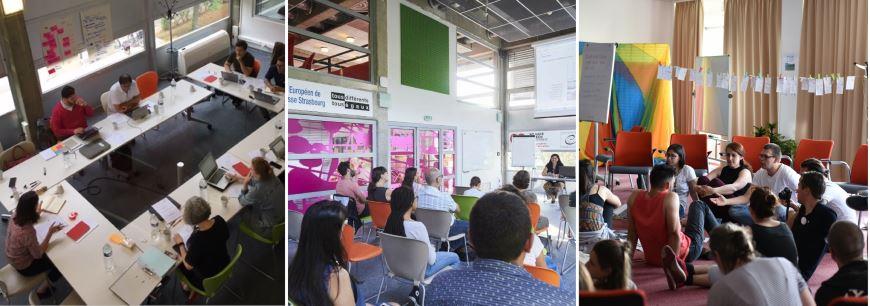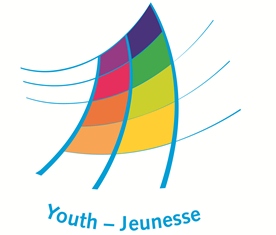Shrinking space for civil society: its impact on young people and their organisations

“Political freedoms are not a luxury in a democratic state; they are a necessity. A democratic society cannot be built or preserved if freedom of assembly and freedom of association are not guaranteed, encouraged and respected. These political freedoms are an indispensable check on any democratic power. Freedom of assembly and freedom of association are key building blocks of democratic security.”*
*State of Democracy, Human Rights and the Rule of Law, Role of Institutions, Threats to Institutions, Report by the Secretary General of the Council of Europe 2018.
 INTRODUCTION
INTRODUCTION
An active civil society – a vital component of European society
An independent and empowered civil society is an essential component of a healthy democratic system.[1] Civil society organisations (CSOs) help and support citizens, ensuring their voices are heard. They can advise policy makers, assist in legislative drafting and in general support authorities in decision making, thus ensuring that policies respond to citizens’ needs. They also have an important role to play in monitoring governments’ and parliaments’ activities, holding them accountable for their actions, especially when these infringe on people’s rights. CSOs are vital vehicles for active citizenship; legal, financial and policy frameworks need to be in place so that they can operate freely and sustainably.
These organisations are also an important partner for the Council of Europe: many participate in steering committees, advising them on the situation at the grass-roots level, providing data and research findings to inform their work. Nearly 300 international NGOs hold participatory status with the Council of Europe which considers them a vital component of Europe’s democratic fabric, guaranteeing freedom of expression and association – both of which are enshrined in the European Convention on Human Rights and are fundamental to democracy – and promoting the Council of Europe’s values and standards through their active participation in public life.
The Council of Europe youth sector also recognises the importance of the advice NGOs can provide in policy making: who better knows what young people need from policy than the young people themselves? This is why a co-management system was introduced nearly 50 years ago to ensure that youth NGOs and governmental representatives take decisions together, not only on programmes and meaningful policy measures, but also on budgets.[2]
[1] Committee of Ministers’ Resolution CM/Res(2016)3 on a participatory status for international non-governmental organisations with the Council of Europe.
[2] In the co-management system, the Advisory Council on Youth (CCJ), composed of 30 youth organisations, and the European Steering Committee for Youth (CDEJ), representatives of the authorities responsible for youth issues in the 50 states parties to the European Cultural Convention, come together in the Joint Council on Youth (CMJ) which is responsible for the policy and budget of the youth sector.
Civil society under threat?
In recent years, a number of youth civil society organisations have alerted the Advisory Council on Youth (CCJ) to what they perceive to be increasing infringements on their freedom of association, assembly and expression, in short what has been termed the “shrinking space for civil society”.[3] Indeed, these NGOs were not the only ones to express concern about what the Council of Europe Human Rights Commissioner referred to as the “trend of backsliding” of freedom of association[4] and the Parliamentary Assembly of the Council of Europe as a “deterioration of the working environment for NGOs”. A recent review by the Conference of INGOs of developments in standards, mechanisms and the case law of the European Court of Human Rights affecting NGOs in member states and beyond laid bare what it considered to be “insidious actions to limit civil society freedoms”.[5] The European Union Agency for Fundamental Rights says that CSOs “increasingly report that it has become harder for them to support the protection, promotion and fulfilment of human rights within the Union due to both legal and practical restrictions.”[6]
In his annual report, the Secretary General highlighted the adverse impact of unduly restrictive laws and practices on the freedom of association and freedom of assembly and, ultimately, on democracy itself.
While the right to assemble is not an absolute right and may be subject to limitations, public demonstrations and rallies are part of what makes up a pluralist democracy. Therefore any limitations on such gatherings must meet the requirements set out in Article 11 of the European Convention on Human Rights. With respect to freedom of association, the Secretary General emphasised that otherwise legitimate concerns of public order, terrorism, or money laundering cannot justify controlling NGOs or restricting their ability to carry out their legitimate watchdog function. The Committee of Ministers believes that NGOs should also be free to solicit and receive funding not only from public bodies in their own state, but also from donors, other states or multilateral agencies, subject only to the laws generally applicable to customs, foreign exchange and money laundering and those on the funding of elections or political parties. It is essential that no legitimate aim should be used as a pretext to control NGOs or to restrict their ability to pursue their missions and should not result in seeking to stigmatise or ostracise some civil society organisations solely on the basis of foreign funding.[7]
[3] The term “shrinking space” has been used by a number of organisations, for example the Council of Europe Commissioner for Human Rights (see footnote 5); the European Parliament, European Foundation Centre, Amnesty International.
[5] Non-Governmental Organisations: review of developments in standards, mechanisms and case law 2015-2017, Expert Council on NGO Law, December 2017
[6] Challenges facing civil society organisations working on human rights in the EU, EU Agency for Fundamental Rights, 2017.
[7] State of Democracy, Human Rights and the Rule of Law, Role of Institutions, Threats to Institutions, Report by the Secretary General of the Council of Europe 2018.
Exploring the situation from a co-managed angle
The Advisory Council felt the unique framework of the co-managed Joint Council on Youth (CMJ) would provide an ideal venue to debate the consequences of the shrinking space for civil society organisations and for democratic societies, but also to share positive examples of mechanisms which promote their participation. Consequently, the Joint Council on Youth decided to debate the “shrinking space for civil society and youth organisations: contemporary challenges and solutions” during its 38th meeting (27‑28 March 2018).
The debate was a precursor to this consultative meeting which seeks to build on last March’s discussion, especially the ideas and concepts that were broached. The debate will be broadened to include the perspectives and expertise of a wider group of stakeholders: other Council of Europe sectors, international organisations, as well as governmental and civil society stakeholders.
If the space for civil society and youth organisations is shrinking, the consequences for democratic societies could be considered an impediment to the exercise of citizens’ rights to freedom of association and expression, and therefore a serious threat to democracy, human rights and the rule of law. In the foreword to his 2017 report on the state of democracy, human rights and the rule of law in Europe, the Secretary General of the Council of Europe, warned that our democracies can go backwards and “that democracy is by definition pluralist and that giving citizens the right to be different and to criticise authority makes our countries more stable, not less.” The Secretary General also underlined the need to ensure that civil society remains vibrant and uninhibited. As the main guarantor of the values of human rights, democracy and the rule of law, the Council of Europe’s instruments and standards – both binding and non-binding – can ensure that vibrancy lives on.
 RESOURCES
RESOURCES
 COMPENDIUM of Council of Europe documents related to youth NGOs
COMPENDIUM of Council of Europe documents related to youth NGOs
and youth participation
 Safeguarding Civic Space for Young People in Europe - study / European Youth Forum
Safeguarding Civic Space for Young People in Europe - study / European Youth Forum
Civic space – experiences of organisations in 2019 / Fundamental Rights Agency
Shrinking space for civil society: the EU response / European Parliament Think Tank
The shrinking space for civil society / European Foundation Centre
Expanding Space - report by LSU - SVERIGES UNGDOMSORGANISATIONER
 PAST ACTIVITIES
PAST ACTIVITIES
Consultative meeting on Shrinking space for civil society

"Impact on youth of shrinking civic space" - video message from Matjaž Gruden, the Council of Europe’s Director of Democratic Participation


